‘Not a single security guard helped me’: The urgent need to make gigs and festivals safer for women
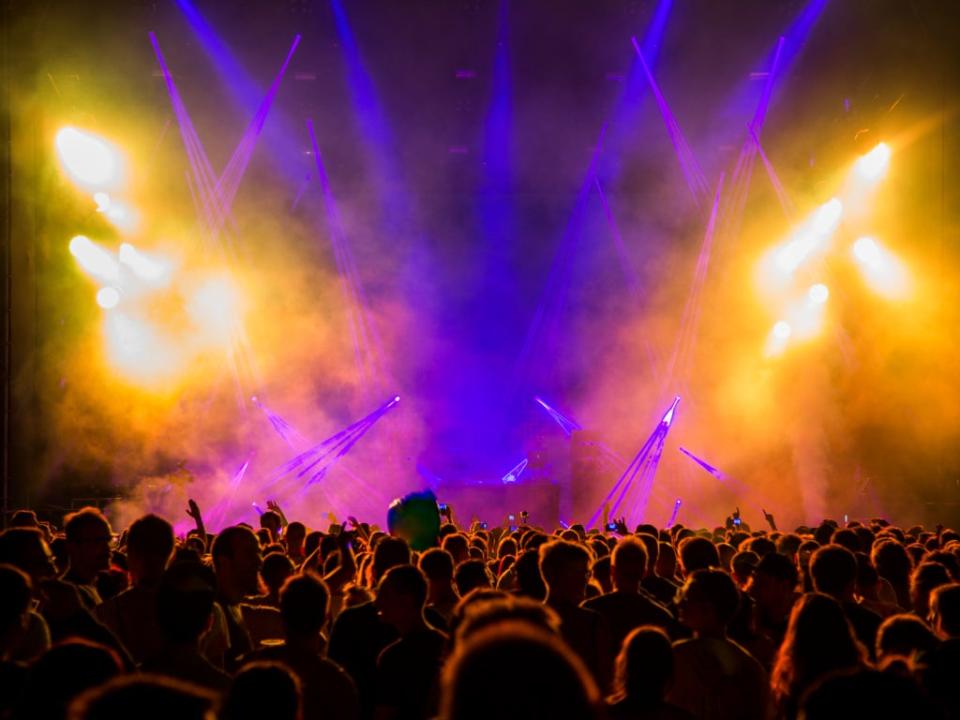
Sarah, 23, was enjoying her first festival post-lockdown when it happened. She was near the stage in a crowded space, and a man started to dance close to her. She felt uncomfortable. “I asked him to move,” Sarah recalls. “He just ignored me.” She moved away, but he followed her. “Ten minutes or so after this, he put his hand up my skirt and assaulted me. He then disappeared into the crowd.”
Sexual assaults like this at gigs and festivals are endemic. A YouGov poll in 2018 found that nearly half (43 per cent) of female festival goers under 40 have experienced sexual harassment. A UK-wide study at Durham University recorded similar numbers, estimating that the true number of sexual assaults at festivals could be closer to 250,000 a year. Safe Spaces Now, a new UN initiative to make safer public spaces for women, found seven in 10 women had been sexually harassed this year alone.
Claire Barnett, executive director of UN Women UK (and creator of the UN Women’s Safe Spaces Now project), says cases like Sarah’s aren’t unusual. “Music should be a space to really escape and experience joy with your friends, but instead groping, drink-spiking, up-skirting and other violent behaviour is still far too common,” Barnett explains. “It’s a quintessential part of nightlife for many women – and this is totally unacceptable. The threat and reality of violence ruins live music for so many women and girls. It’s been allowed to continue for too long and frankly, almost nothing has been done to stop it.”
There are some, at least, who are trying to stop it. In August, dozens of women from the music industry, including Mabel, Sophie Ellis-Bextor and Glastonbury’s Emily Eavis, signed an open letter from UN Women calling for an end to women feeling unsafe at live music events. “It is not OK for women to be constantly worried about their safety at festivals,” it began. “We have a collective responsibility … Our spaces must provide safety from harassment, violence, and abuse of power.”
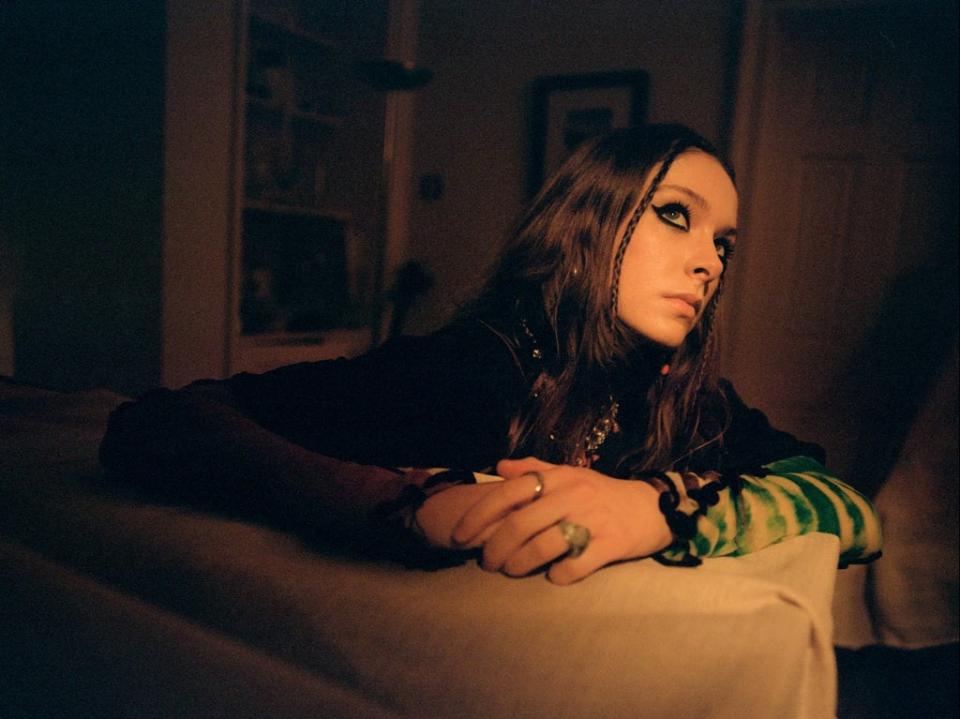
Norwegian singer-songwriter Sigrid signed the letter. “No one, women nor anyone, should come to venues wondering what could happen tonight,” she tells me. “It should be a place of joy, inspiration and fellowship.”
Another of the signatories was Holly Humberstone. “Every woman has the right to feel safe in a music venue and space where they are celebrating music together,” says the heavily touted singer-songwriter, who was runner-up in the BBC’s Sound of 2021 poll and has been compared to Phoebe Bridgers. “We have to be able to dance and live without the threat of unwanted attention. My friends, sisters and I have been going to gigs for years and it’s where some of our most treasured moments are. The UN Safe Spaces initiative is so important so more women can continue to create memories together.”
Musician Jess Eastwood from Coach Party says she’s seen women experience unwanted attention at gigs – and has experienced it herself as a musician. “I have seen it at gigs that I go to, but also as an artist now,” Eastwood explains. “When we finish playing, we’ll go out into the crowd to speak to people and I’ve experienced some really uncomfortable situations, like people assuming that they could just put their arm around me, or have a cuddle, or kiss me on the cheek. It’s just such an invasion of personal space. It’s just the inappropriate touching and the assumption that it’s OK when it’s really not.”
She says the male members of the band “do not experience those types of things”. On another occasion, a man in the crowd told her to “get your t*** out”. “Because we’ve [the female members of the band] pointed it out now, we can all notice it and it’s so obvious and blatant,” says Eastwood. “There may be a greater awareness of it and people are speaking about it, but the actual actions I don’t think have improved at all. I think it’s worse now than ever.”
Mary Crilly, CEO of Safe Gigs Ireland, has been supporting victims of sexual assaults at music venues and nightclubs for more than 40 years. “Our job is to help people pick up the pieces,” she says. “We take them from disbelief to belief, from shock through to acceptance, via counselling and support.”
Crilly says reporting the crime presents huge challenges for women. They fear they will not be believed, or they feel as though it is somehow their fault. “We help set up one-to-ones for victims who are scared to report the crime and we support victims who are dealing with guilt and who are often blaming themselves,” she explains. “We have to put a stop to victim blaming and part of that comes in helping women to feel supported in reporting the crime in the first place. Little has changed in this respect for over 40 years: women are still not taken seriously when they report assaults.”
Sarah blamed herself for what happened. “Not a single one of the security guards helped me,” she says. Few had any understanding of what to do. “They just shrugged and it was very much a ‘what do you expect us to do about it?’ situation. ‘Can’t you see how many people are here?’”
Sarah left the festival soon afterwards and went to her local police station. “I was there for hours, alone, and I wasn’t offered any support. I was physically very badly bruised from how hard he’d groped me. It was a massive violation of my body, my safety, and the officers didn’t seem to care. Once I reported it, I never heard from the police again. I can fully understand now why women feel reluctant to come forward because frankly, we’re treated as though it is our fault.”
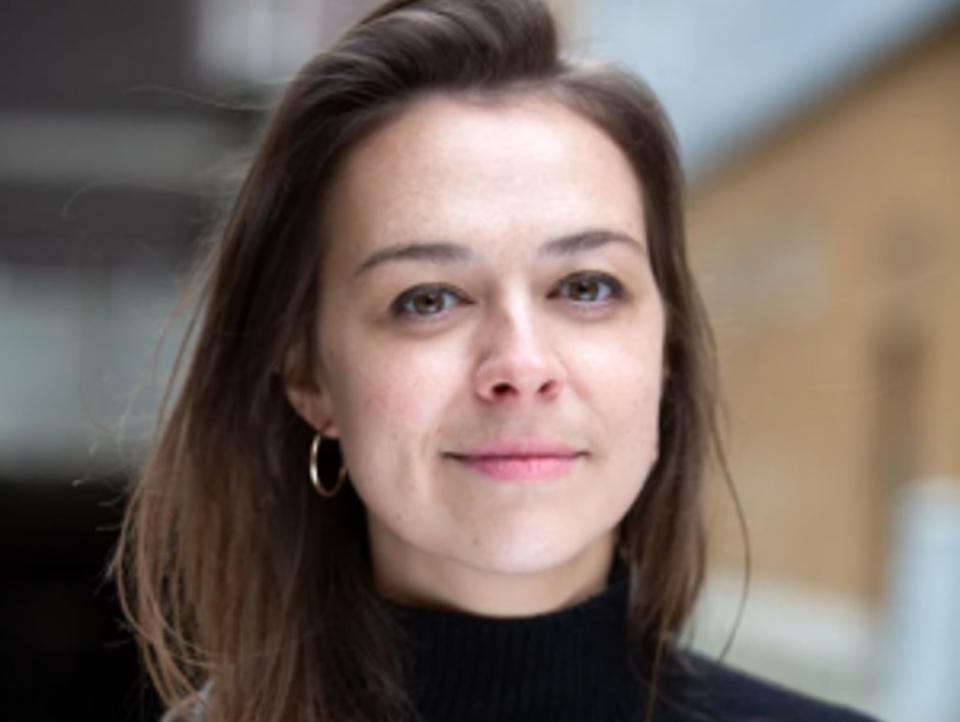
Barnett says few women are reporting crimes because of situations exactly like this. “Over 95 per cent of women told us they aren’t reporting these experiences, which would suggest the picture is far worse than the few figures we do have. Many say they don’t report it because they don’t believe it will change anything.”
Dr Hannah Bows, who led the Durham study, agrees. “We’ve spoken to women who either experienced sexual violence at a festival or have witnessed it – actually in most cases, it’s both – and a lot of them don’t report it because they don’t feel they will be believed. They think there’s no point because nothing can be done, or that they won’t be taken seriously. I think having the right messaging [at live music events] is paramount – an acknowledgement that this does happen and a commitment to doing something about it. Listening and believing people when they come forward is the first step. Having better responses from security though training is the next.”
Bows says situations like Sarah’s, where security staff are underprepared when it comes to dealing with women reporting sexual assaults, is common. “It’s a case of ‘well it probably did happen but look at the size of this place, what do you really expect us to do about it?’ But it’s still intelligence you’ve been given about an incident and if that were reported and held somewhere, you start to build up a picture because lots of women are telling you the same thing. You would have an idea then not only of what’s going on but also what you might do long term in terms of prevention.”
When Bows went to look for statistics on assaults at festivals, she found a woeful lack of data. “The crime survey [a collection of data that monitors crime in the UK] doesn’t give us any information whatsoever on festivals, for example, and perhaps not surprisingly, festivals haven’t really been forthcoming with this kind of data themselves.” She felt that many festivals were putting fear of bad publicity over their duty of care to attendees.
“We found the behaviours women experienced were groping, catcalling, verbal harassment, being followed, being grabbed, men coming into tents and attempting to rape women and in some cases, completing rapes,” she says. “It was a spectrum of behaviours that we know women experience in basically every public and private setting.” The existing data out there, she says, is a “gross underestimation” of the true picture.
“I think our study has shown that festivals aren’t some kind of special space where it doesn’t happen. I think the festival industry wants us to think that’s not the case. We’re sold a particular message about festivals, which is that they’re these sort of escapist, fun, hedonistic spaces. But for most women, they’re not much fun at all.”
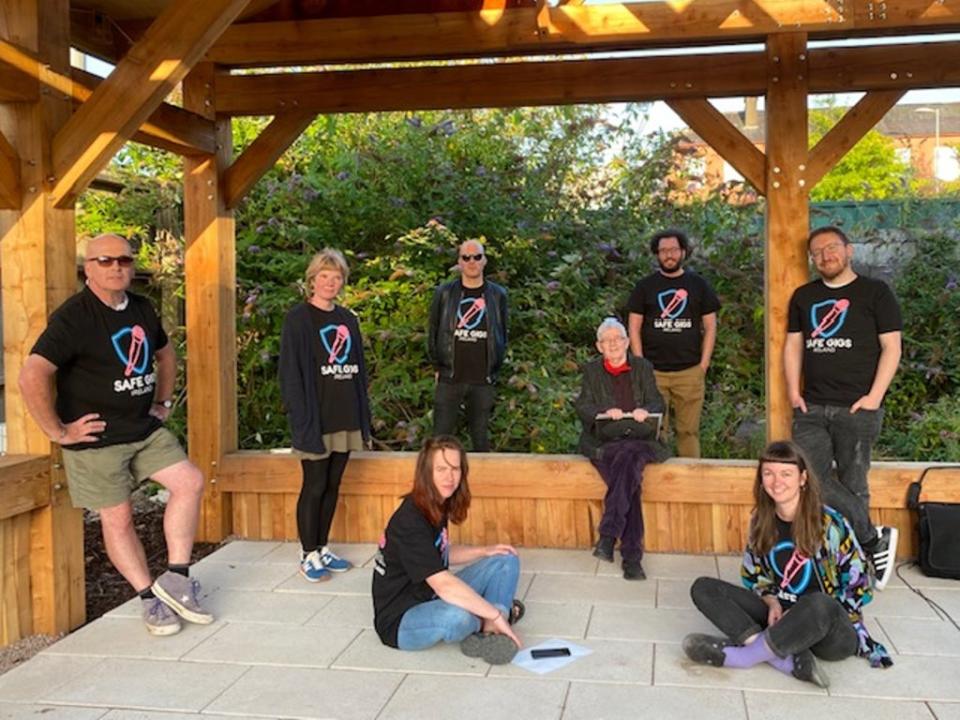
Amy, 27, was celebrating seeing one of her favourite bands live this autumn after finishing her master’s degree. “I was enjoying the night so much, but then after about 10pm, I don’t remember a thing.” Amy’s drink was spiked, she thinks, at about 8.30pm when she visited the bar to get drinks for her and her friends. About an hour later, she was unable to stand. “I was in a mess, got separated from my friends and the next thing I know, security guards threw me outside and left me there.” Amy was approached by a man who she thinks could have been responsible for spiking her drink. “Fortunately, one of my friends found me. God knows what would have happened otherwise.”
Dola Twomy, who works with Crilly at Safe Gigs Ireland as a victim therapist, says she sees this situation time and time again on nights out. “Women appear to be out of it, they’re kicked out, on their own and totally vulnerable. There is so much danger there. Venues have such a duty of care and many actually contribute to the danger by doing things like this. I can’t imagine a more desperate situation created by security.”
Drink spiking is a crime on the increase. In September and October, the National Police Chiefs’ Council said almost 200 drink spiking incidents were reported to police forces across the UK. Kate Crudington – a co-founder of Get In Her Ears, a non-for-profit platform that promotes the safe enjoyment of live music for women, non-binary and LGBT+ people – was also a victim of drink spiking while a student. “I know sadly that men’s feeling of entitlement to women’s bodies has been going on forever,” she says. “I’ve seen in the news and on my social media feed the distressing reports of an increase in girls and women being spiked at gigs and pubs. I’m not sure if this means the incidents have increased or whether people now feel more able to report them. I’m hoping it’s the latter.”
Along with Mari Lane and Tash Walker, Crudington promotes and hosts gigs with a strict policy about behaviour – something they hope other venues will follow. “We consistently maintain a zero-tolerance policy to sexual assault or harassment at our events,” Lane says. “We promote ourselves as a point of contact for incidents to be reported to and we always make sure there is a member of staff from the venue who we can consult when an incident is reported.”
Lane says staff at venues need training – which organisations like theirs, along with Safe Gigs for Women and Girls Against, are putting into practice. Lane thinks if venues “strive to promote the safest possible environment and make people explicitly aware that they have a definite protocol to follow in incidents of harassment”, then ultimately “survivors would feel more comfortable in reporting it”.
After Sarah Everard was sexually assaulted and murdered by a serving police officer earlier this year, women’s confidence in authority is at rock bottom, says Lane. “I certainly don’t think our confidence or trust in the police has improved in light of recent events, and I don’t believe that instilling plain clothes officers into venues – as has been recently suggested – would make us feel any safer. In fact, quite the opposite.”
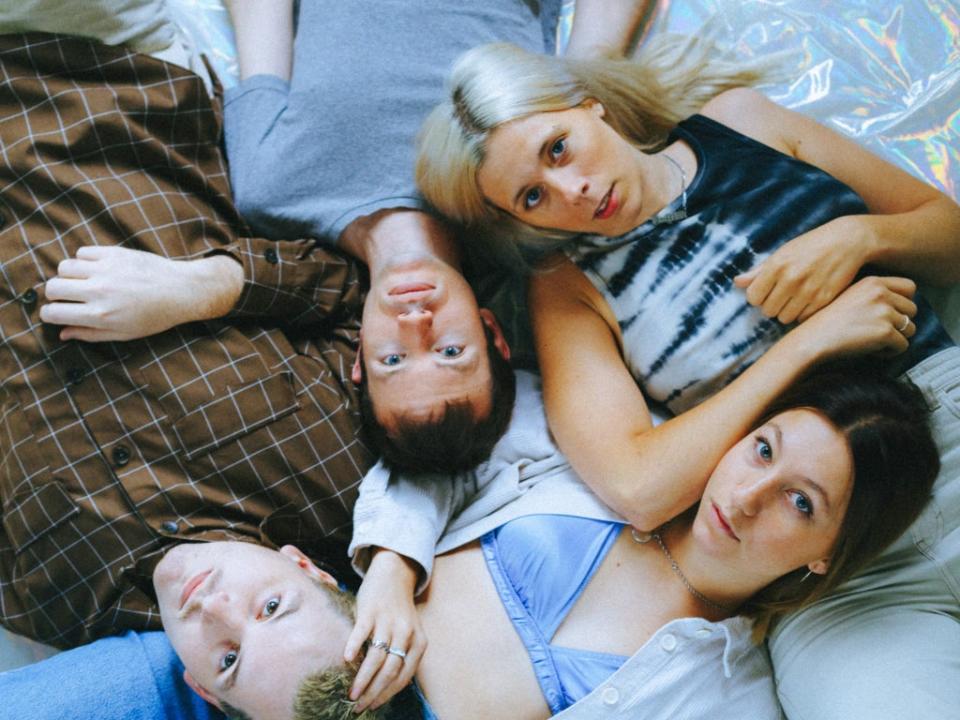
Get In Her Ears, Safe Gigs Ireland and Safe Gigs for Women have all recently stressed the importance of the role of the “active bystander” in helping to prevent such assaults, too. As Lane puts it, “putting a focus on making men aware of the problem and encouraging them to be proactive in preventing it by not being afraid to call it out, to reprimand their peers if they feel they have been responsible for putting someone’s safety at risk”. Lane believes “there’s too much focus on ‘victim blaming’ and giving ‘advice’ to women and girls about what not to do in society, when the emphasis should be on educating men and calling to account those responsible”.
GigSafe, a not-for-profit organisation based in Glasgow, stations people in venues to help those facing safety issues at gigs. Amelia Boyle, founder and managing director of the organisation, says the power of education in bringing about change is always underestimated. “These issues are rooted in society and we should be breaking the problems down by educating people on topics like misogyny,” she believes. “If the government recognises that by implementing these topics in early education, it will begin making change in our society, which will then gradually make change in our music venues.”
Crilly says she’s tired of seeing men not calling out others when they witness an assault – which she thinks is also through a lack of education. “So few men stand up and challenge it. I get sick and tired of the guys who are having a great laugh about it all. They need to be held to account too because in my mind they’re just as bad because they’re colluding with it. They’re not just tolerating it, they’re allowing it.”
Laura, 32, was at her first gig post-lockdown when she was assaulted by a man in full view of his friends. In Laura’s words, they “just stood there laughing”. Laura was groped and up-skirted and received a torrent of verbal abuse from her attacker when she told him to stop.
“It’s often a very intrusive sexual assault,” says Bows, “and what is difficult is that often, by the time the woman has turned around to look at who it was, they’ve gone through the crowd, making identification difficult.” To counteract this, Bows says they’re going to advise that venues set up vantage points on stage. “We know that some musicians have actually stopped their sets when they’ve seen an assault.”
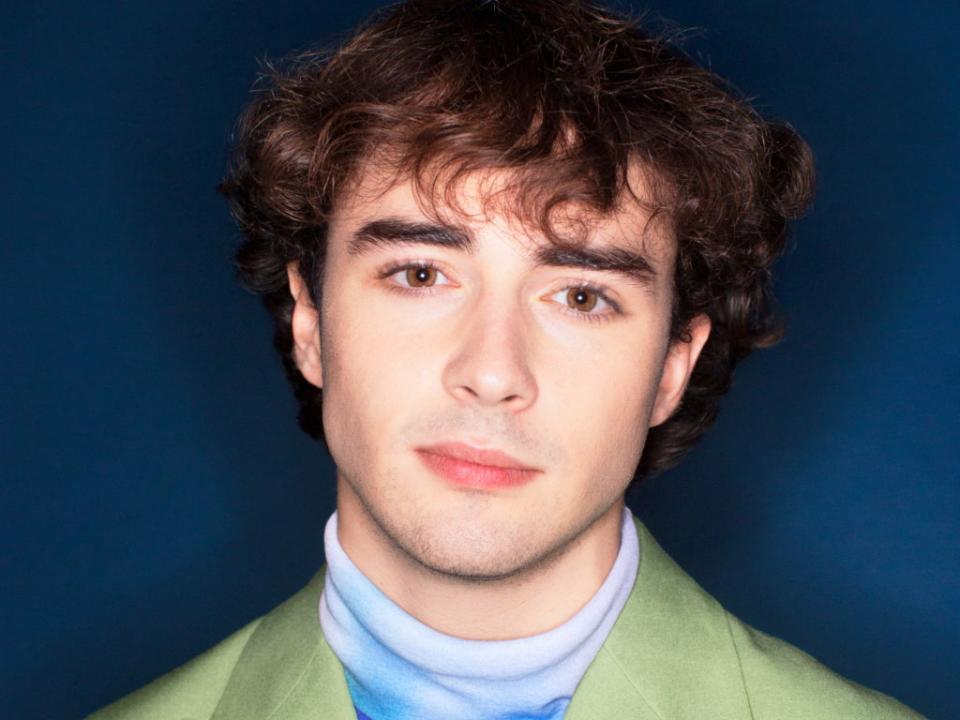
Up-and-coming musician Alfie Templeman recently told his fans that assaults at his gigs will never be tolerated. “I don’t want anyone like that coming to my gigs full stop, so if we see it or are aware of it at a gig, we will throw that person out instantly,” he says. “Having a zero-tolerance policy for harassment at my gigs is mandatory. Anyone who does this should be banned from going out because there’s absolutely no excuse for harassing someone.”
Venues should follow suit, he adds. “I think the industry should be working harder to state that there’s a zero-tolerance policy for any abuse in their clubs or venues. If they don’t make that change then how can we know that it’s a safe place to go to? How are women meant to enjoy gigs if they’re constantly worrying about the safety of the place they are in?”
When Coach Party toured with the all-male band Sea Girls recently, Eastwood was impressed that they made a point of addressing the male-heavy crowd directly, every night, about gig safety for women. “They made the effort on stage to create awareness of this problem,” she explains. “They’d be like, ‘We’re all here to enjoy music, same as each other, protect women, make sure they’re enjoying it just as much as you are.’”
In many ways, the pandemic has worsened the problem. The men who watched as Sarah was attacked were all wearing masks. “I felt like this actually encouraged them to be more brazen about it because obviously I couldn’t see their faces.” Laura reported the incident but received no follow-up call.
Kai Stone, freelance project and partnerships manager from the Good Night Out Campaign, a campaign to make nightlife safer, says he’s seen attackers abusing Covid-19 safety measures to carry out assaults.
“As lockdown eased, we received reports of perpetrators of harassment using social distancing and safety measures to their advantage,” Stone explains. “Masks were used to grant them anonymity which in turn further dissuades people from reporting harassment due to the additional barrier of not being able to identify the harasser. We also saw staff using the handwritten track and trace system to harass women who had visited venues they worked in to call or even visit their address after they left.”
He continues: “The reset that lockdown provided from certain forms of public harassment has provided us with an opportunity to notice, name and challenge the behaviours that we should never have to put up with as they re-emerge as part of the return to nightlife. They should not be part of our ‘new normal’.”
Stone says they are frustrated by venues whose managers know what’s going on, but fear addressing this will result in negative perceptions. “Venues definitely understand the extent of the issue,” he says. “But many managers we speak to feel that openly addressing the issue is too high risk. In the UK, there are currently no legal requirements for venues to demonstrate sexual violence prevention measures when applying for a licence, nor is there any mandatory training for nightlife staff so the venues and festivals we work with are under no legal obligation to do so.” Good Night Out has worked with more than 200 nightlife spaces, training several thousand workers on how to respond to disclosures of sexual assault, and how to support victims.
“Unfortunately the nightlife sector consists of low-paid, often precarious work where frontline staff are not offered adequate training,” Stone continues. He says their organisation encourages a “whole-venue approach” so that as many staff at the venue as possible are equipped with the tools they need to offer support. “When we up-skill staff and replace myths with reality, we create safer spaces.”
Barnett, meanwhile, worked with Oxford’s Strawberries & Creem festival as a pilot event for creating a safer space over summer. “It was really exciting,” she says. “Our interventions included a Safe Spaces Now tent where festival-goers came to talk to us about rights and better bystander behaviours. We had Guardian Angels around the festival site available for people needing assistance or advice and [we provided] training for security, hospitality and welfare staff. We were able to speak to thousands of festival goers of all genders to share tools, helplines, support people in need and give information on how to step in as a bystander.”
The result, Barnett says, “was incredible” and they’re “now in conversations with several festivals who will be implementing our measures for the 2022 cycle”. They’ve also consulted more than 5,000 women on how to better design safe spaces. “The physical spaces need to be designed with women in mind,” she says. “From the toilets to darker areas and campsites to make sure those are safe and someone in danger can easily seek help from wherever they are and then the behaviour within those spaces needs to be addressed.” Barnett says Covid has shown that behaviours can be changed at scale, but “the reason this knowledge isn’t being used to reduce sexual harassment”, she says, “is because those in power haven’t cared enough, and there hasn’t been enough of a co-ordinated response”.
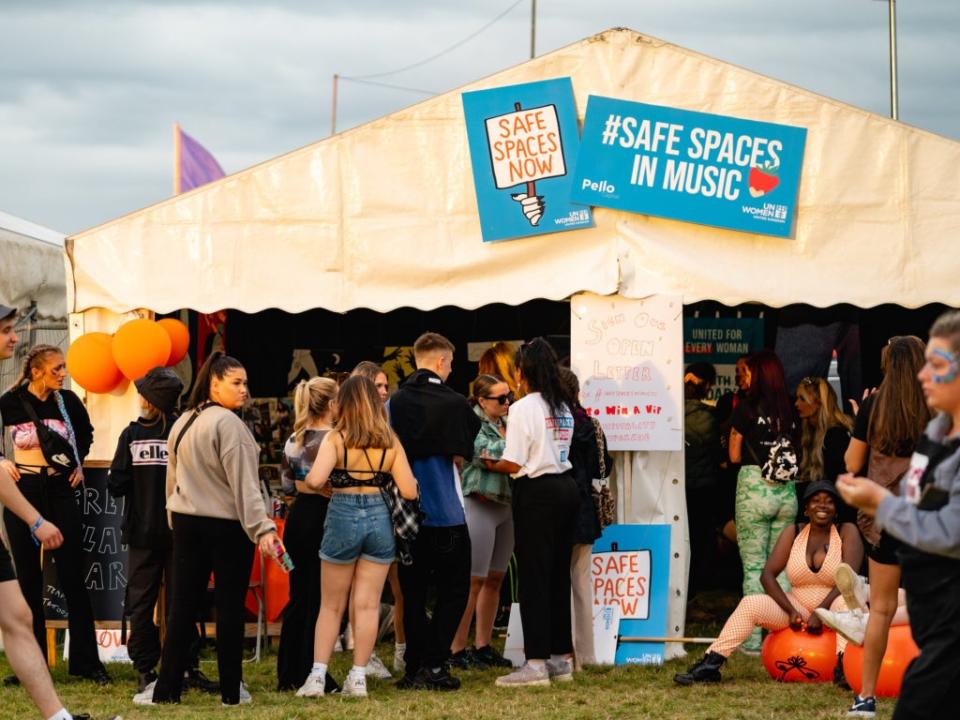
Many venues do get on board once they realise how simple, easy and cheap the safety measures are to implement. “There are actually people who want to run good, safe gigs,” says Crilly. “We’ve met many decent people who are prepared to do that once it doesn’t cost them an arm and a leg, and I don’t think it has to. Venues getting it right will have a safety statement, a code of conduct and will train staff. By training, you’re enabling: it’s so simple to achieve with just a little time and thought.”
Boyle says GigSafe in Glasgow has had much “positive feedback” from crowd members. “We get frequent gig goers approaching our desk and saying they are glad we are here if something happens to them.”
Jennifer, 31, says being in a venue with clear safety measures saved her life. “My drink had been spiked with a date-rape drug,” she explains. “I was woozy, out of it, and I remember a man escorting me to the back of the venue.” He started to assault her. “Someone in the crowd had seen, and suspecting something wasn’t right, told one of the venue’s several welfare officers, who were highly visible in the auditorium,” she says. “They intervened, called the police and he was arrested. They saved my life.”
Barnett says now is the time for that action. “Ten years ago, we said this was a generational thing, and that we’d naturally see change soon – but women are still reporting violence on a daily basis,” she says. “We need to be seeing commitments to change now. While this topic is being widely discussed, we have a window of opportunity to introduce better preventative measures – and this window will not be around forever.”
“Violence in public spaces is a human rights crisis,” Barnett continues. “It will continue to cause harm if we don’t act now… and we must act now.”
Some of the women’s names have been changed to protect their privacy
Read More
Everything you need to know about Strictly contestant Dan Walker
John tells Paul his ‘only Beatles regret’ during secret showdown featured in Get Back
The 40 best albums to listen to before you die
Everything you need to know about Strictly contestant Dan Walker
John tells Paul his ‘only Beatles regret’ during secret showdown featured in Get Back

 Yahoo Finance
Yahoo Finance